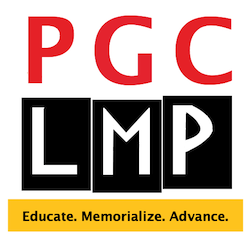The Prince George’s County Lynching Memorial Project is pleased to announce a Racial Justice Essay and Creative Arts Contest open to Prince George’s County students in grades 9-12. Scholarships totaling $5,000 or more will be awarded to winning participants.
Deadline
Submissions will be received from December 1 – February 28, 2025. Entries must be original works that shed light on an historical or present-day racial injustice. Some suggested topics are listed below.
Instructions
Original entries may take the form of essay (prose), poetry/spoken word, and visual arts (e.g., drawing, painting, sculpture, digital art, photography). Written works cannot exceed 1200 words and should be submitted as a Word document or .pdf. Spoken word submissions must be in the form of a Word document or .pdf of the written text, accompanied by a recorded performance. Essays must use credible sources and list the sources or reference materials used.
Visual art entries should be submitted as a high-resolution JPG or PDF image of the original artwork. Sculptures or other three-dimensional entries should be accompanied by 2-4 photos providing multiple views of the work.
All submissions must be accompanied by a completed student entry form and a permission form signed by a parent/legal guardian if the student is under the age of 18. Submissions and forms should be uploaded at Racial Justice Creative Arts Contest – Prince George’s County Lynching Memorial Project (pgclmp.org) by midnight of February 28, 2025. Submissions are limited to one entry per student.
Previous winners of the PGCLMP racial justice creative arts contest and the essay contest supported by the Equal Justice Initiative are not eligible to apply for this contest.
To submit your work: https://forms.gle/6woT3GyVk5qC6LG86
Announcement of Winners
Scholarship awards will be disbursed among winners for the best essay, poetry/ spoken word, and visual arts submissions and will be announced in April 2025.
Suggested Topics:
- Lynchings in Prince George’s County or nationwide
- The Georgetown University Sale of Enslaved People
- Environmental Racism
- White Supremacy/White Power Groups
- The Struggle to Desegregate Prince George’s County Public Schools
- Segregation in Sports
- Housing Discrimination
- Racial Disparities in Digital Access and its Impact on Quality of Education
- Interactions With Police in Prince George’s County or nationwide
- The Legacy of Emmett and Mamie Till-Mobley
- The School to Prison Pipeline
- Disparities in Health and Healthcare
- Historical/Intergenerational trauma
- Civil rights heroes (champions in Maryland and Prince George’s County
- Voting Rights
- Intersectional Trauma
- Bias in College Admissions Tests, e.g., SAT
Sources. These sources may help as a starting place for identifying and understanding some racial justice issues.
Lynchings in Maryland — Maryland Lynching Memorial Project (mdlynchingmemorial.org)
Home (eji.org) . This is the Equal Justice Initiative site which includes reports on lynching, criminal justice reform, and other topics.
Prince George’s County Lynching Memorial Project – Truth first. (pgclmp.org). Information about lynchings in Prince George’s County can be found here.
Maryland State Archives. Information on Maryland history can be found here including information on the lynching of George Armwood. Search under Special Collections.
History | MNCPPC, MD (pgparks.com). This site provides information on Black history in Prince George’s County.
Police Reform | Prince George’s County, MD (princegeorgescountymd.gov)
Southern Poverty Law Center (splcenter.org) Information is available on hate groups, voting rights, criminal justice reform, economic justice, and other topics.
Legal Defense Fund (naacpldf.org). Information is available on criminal justice, economic justice, political participation, and education.
Civil Rights Movement: Timeline, Key Events & Leaders – HISTORY
How the Word is Passed. A Reckoning of the History of Slavery Across America. (2021). Clint Smith.
Records & Recollections: Early Black history in Prince George’s County, MD. (1989). Bianca P. Floyd. (Check libraries for availability)
On the Courthouse Lawn: Confronting the Legacy of Lynching in the Twenty-first Century. (2007). Sherrilyn I. Ifill.
The Warmth of Other Suns: The Epic Story of America’s Great Migration. (2011). Isabel Wilkerson. Also see The Great Migration and the power of a single decision | Isabel Wilkerson – Bing video
The Color of Law: A Forgotten History of How Our Government Segregated America. (2017). Richard Rothstein.
How to Be an Antiracist. (2019). Ibram X. Kendi.
Note to Parents/Educators/Community Groups
We strongly encourage parents, educators, and those who serve students in community organizations to partner with students, encouraging them to enter the contest and lending them guidance and support during their creative process. Your support can include offering assistance with choosing the racial justice topic to focus on and learning more about it. In the case of creative writing/spoken word submissions, you can provide valuable feedback by assisting with editing the text or critiquing your student’s performance.
Submit your work here: https://forms.gle/6woT3GyVk5qC6LG86
